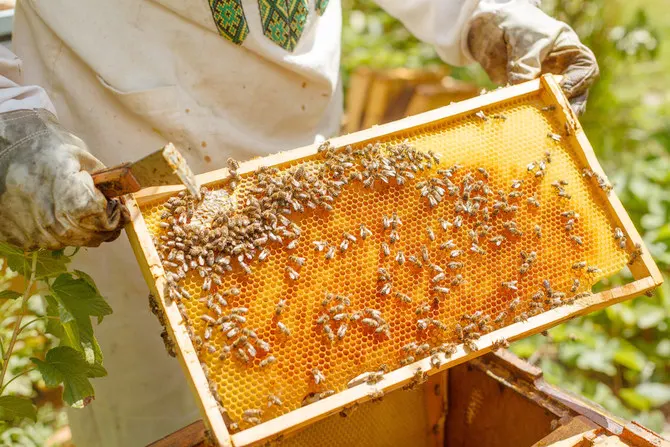In an effort to make Saudi Arabia self-reliant on agricultural products, Saudi Arabian Oil Co. has signed a deal to support 600 beekeepers to upgrade their harvesting skills as the Kingdom aims to boost its honey production.
The oil giant has signed a memorandum of understanding with the Beekeepers Cooperative Association in Rijal Almaa province to provide honey farmers, particularly those with limited income, with comprehensive training and essential resources to improve their production capabilities.
The association aims to produce approximately 10,000 honeybee queens and 4,000 breeding colonies of local bees without relying on external bees.
The agreement was signed between Khalid Al-Zamil, vice president of public affairs at Saudi Aramco, and Ali Al-Hayani, chairman of the Beekeepers Cooperative Association in Rijal Almaa.
Saudi Aramco has been involved in projects supporting beekeeping in Asir since 2020 as the region is known for producing organic honey throughout the year.
The new initiative will provide farmers with the latest tools that aid in product development, marketing strategies, business planning and growth.
There are about 16,000 registered beekeepers in the Kingdom, but that figure is projected to reach 30,000 by 2030, with the number of beehives exceeding 1 million.
According to the Ministry of Environment, Water and Agriculture, the Kingdom produces nearly 5,000 tons of honey and imports 24,000 tons annually. Over 20 types are sold locally from hundreds of apiaries nationwide.
The southern region produces some of the highest grades of honey and the rarest types, such as Al-Majra, which sells for $266 to $320 a kilogram.
Speaking to Arab News in April, Prof. Ahmad Al-Khazim Al-Ghamdi, head of the Bee Research Chair at King Saud University and president of the Arab Beekeeping Association and Beekeepers Association in Albaha, said that preservation projects and initiatives are more critical today than ever before due to climate change and the resulting loss of bees’ natural habitats. —AN










